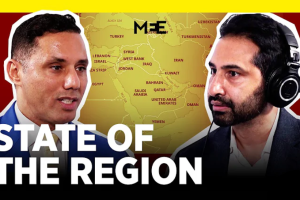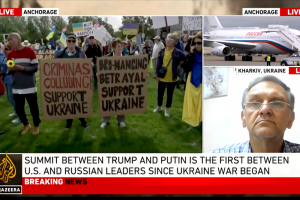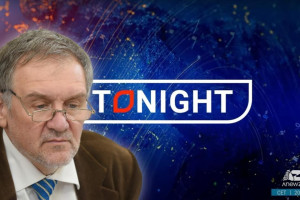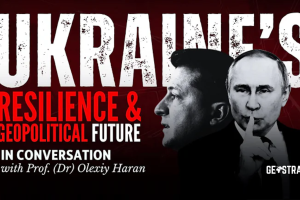Petro Burkovsky: We need to ask the “Opposition Bloc”, why do they work concurrently with Russia so much?
Denys Tymoshenko,

The Ukrainian government and pro-governmental parties, according to the Detector Media NGO, are losing to the “Opposition Bloc” in communication with Donbas residents and Russian propaganda. Why? Is this a lack of skills in talking to Donbas residents or simply indifference to their views? All of this was discussed on the air of the “Radio Donbas Realities” program by guests Petro Burkovsky, analyst of the Democratic Initiatives Foundation, and Oles Doniy, activist.
 – Mr. Burkovsky, the study "Monitoring of the State Communication Policy for Donbas May-June 2018" has already been regularly conducted. What trends can be observed, or conclusions can be made from this period in May-June?
– Mr. Burkovsky, the study "Monitoring of the State Communication Policy for Donbas May-June 2018" has already been regularly conducted. What trends can be observed, or conclusions can be made from this period in May-June?
Petro Burkovsky: This is a study of information sources, namely official internet resources and the official Facebook pages of politicians and government entities, concerning what they want to say about the Donbas or address directly to the residents of the region.
The project itself began in March 2017. As for the findings during the six months from January to June 2018: first, the main person, the person who most often mentions Donbas and most often addresses his words to its residents is the President of Ukraine. He is the politician who most often addresses messages specifically to the residents of the occupied territories. Oddly enough, this is not the "Opposition Bloc" and other actors.
Concerning other authorities, the Cabinet of Ministers and in particular the Prime Minister of Ukraine Volodymyr Groysman ignores Donbas as a topic in communications or uses it solely to interpret certain actions or events as their own achievements.
During this period, a sharp 180 degree turn was made by one of the leaders of the "People's Front", the current Interior Minister Arsen Avakov. In November, during the Ukraine-EU summit, he posted a blog on Ukrayinska Pravda in which he condemned the Minsk agreements. He suggested that realistic steps should be made and proposed the withdrawal of Russian troops as the first step.
In April, he changed his position for some reason. Given international support, he suggested that it would be possible to implement the peace plan if Putin agrees to withdraw troops. This is a really weak point, which he immediately tried to disguise with very controversial proposals: partial liberation of the territories, the adoption of amnesty and collaboration laws, and the deprivation of the right to vote in the presidential and parliamentary elections of the residents from liberated territories after the occupation ends.
The head of the Ministry for Temporary Occupied Territories and Internally Displaced Persons (MinTOT Ed.) Vadym Chernysh was also concerned with his own PR.
- You are most critical in your content analysis of the MinTOT, saying that they "live in virtual reality."
Petro Burkovsky: Yes. We analyze the messages that appear on their official website. In these messages, Chernysh mainly advertises himself, his own views. The Minister must deal with specific issues. He should state what has been achieved, what is planned, the results of any activity – nothing of this kind is there.
- You said that you conducted this monitoring for almost a year and a half. What is the practical outcome? Is the goal to improve communication between Kyiv and the residents of Donbas?
Petro Burkovsky: The Media Detector had two audiences for this. The first is society; people do not always understand what politicians want to say. Due to various reasons, media messengers are often distorted or blocked. The second audience is those who we monitor. They must understand that sometimes they say something that is not needed or do not clearly formulate their thoughts. They are not consistent.
You said from the beginning that "Oppobloc" wins. But this is not quite so. The matter is that they systematically focus on one issue that is constantly repeated, namely, that direct negotiations are required. They work with their electorate, who perceive such theses up to 30% of the population in the eastern regions of Ukraine, as polls show.
When the so-called law of de-occupation was adopted, the [communication] activity declined and they have not explained what would change.
- In the occupied territories, an event called "Ukrainian People's Tribunal" recently took place. The law on reintegration is interpreted as a possible attack by the Armed Forces. This is the message that Russian propaganda throws in the heads of Donbas residents from both the controlled and uncontrolled parts.
Petro Burkovsky: Repetition is one of the most effective methods of propaganda. Interestingly, the "Opposition Bloc" is working the same way. Since April they said that the launch of the Joint Forces could lead to a deterioration of the situation. And we need to ask these politicians ("Opposite Bloc") why they work so concurrently with Russian propaganda.
- How has the rhetoric of the pro-government, democratic forces change? What do they say to the residents of Donbas?
Petro Burkovsky: "Solidarity" is the extension of the President's policy and this party includes many Donetsk MPs elected from single voting areas appealing to local problems, but on the other hand, it is political propaganda.
The "People's Front" does not care about people who live in Donbas; they mention this topic only in the context of the threat from Russia.
Arsen Avakov is now traveling through the region, stressing that they pursue the interests of ordinary residents; the plan is aimed at creating conditions for ordinary people.
- And he actively pursues the topic of the law on the collaborators. Here the core of the idea that now is time to determine who will be punished by Ukraine, and who will be forgiven when sovereignty returns to the ORDLO.
Petro Burkovsky: This is very interesting; he constantly appeals to some international examples. But the most important question to Avakov is that the Minister of the Interior can say that people will be deprived of civil rights. It is completely impossible under the Constitution.
- Do you think the Ukrainian authorities lack understanding, professionalism in communication, or do they just not care about voters, they just fuss on the topic?
 Oleksandr Doniy: I cannot agree with you. Mental changes do not take place in a year or in ten years, it is a very gradual process. But changes in psychology, the outlook of the residents of Donetsk and Luhansk oblasts are enormous.
Oleksandr Doniy: I cannot agree with you. Mental changes do not take place in a year or in ten years, it is a very gradual process. But changes in psychology, the outlook of the residents of Donetsk and Luhansk oblasts are enormous.
According to surveys presented by Iryna Bekeshkina, there are radical changes. Although most of the residents of the Luhansk and Donetsk Oblast still have skepticism about the European Union, unlike other regions. But this is a relative majority, only over 40%.
Changes are happening, another thing is the reasons for them. Most of the changes are due to the activity of all Ukraine, not just government. The tremendous movement of people who often act contrary to the authorities contributes to this.
- If Petro Poroshenko, Volodymyr Groysman, or Iryna Gerashchenko, Deputy Head of the Verkhovna Rada of Ukraine, more actively communicated with the residents of Donbas and conducted explanatory policy so that there was no vacuum for Russian propaganda to fill, would it work?
Oleksandr Doniy: It is not currently profitable for Petro Poroshenko to speak of peacekeeping messages to residents of Luhansk and Donetsk region, because he needs theses which would be more in the vein of patriotic phraseology. He bets on the patriotic monopolization of the Ukrainian electorate, the pro-Russian forces are useful if they can radicalize and nominate their own candidate for the second round. For Poroshenko this is the only beneficial sparring partner. Therefore, the residents of Donetsk and Luhansk Oblasts are ideologically trapped.
Petro Burkovsky: This is the opinion of Oleksandr Doniy. But as our monitoring shows, the President, on the contrary, has become more active over the past year and appeals to the residents of Donbas more than other politicians. Unlike, for example, Yuri Boyko.
The “Opposition Bloc” promotes the issue, too, but speaks with such words that the larger part of Donbas expects to hear. This is also political technology.
- Kyiv speaks with the residents of Donbas on terms beneficial to [the government], not worrying much about the methods of resolving the conflict. What can be done to make Donbas more pro-Ukrainian by virtue of Ukrainian authorities?
Petro Burkovsky: A key problem for all politicians is the gap between words and actions. If politicians cease to deceive people - this applies to everyone, from the President to the opposition - instead of propaganda there should be apparent promises and clear deadlines for their implementation. As well as a clear commitment to responsibility, if something is not implemented or some mistakes occur, then in general the situation will change in Ukraine.








